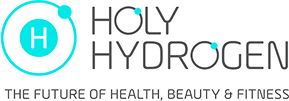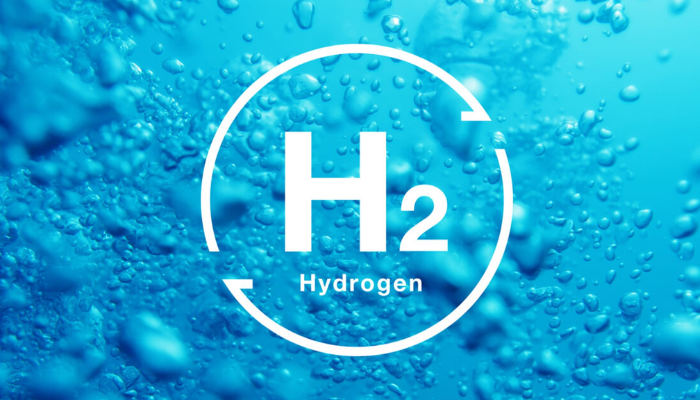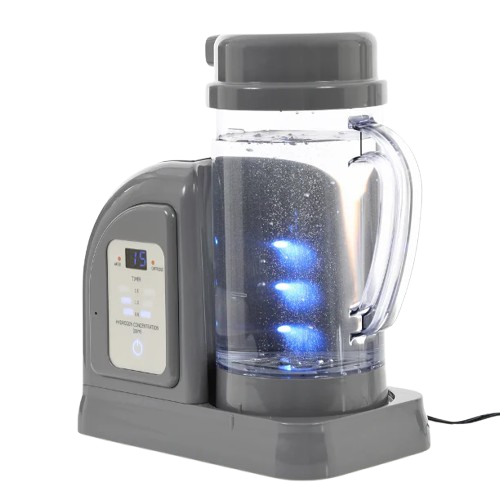The experience of brain fog—that frustrating mental cloudiness that impairs focus, memory, and clarity—has become increasingly common in modern life. Whether triggered by chronic stress, post-viral conditions, or metabolic dysfunction, cognitive impairment affects millions who struggle to think clearly despite trying numerous supplements. Recent scientific research reveals that effective cognitive restoration may benefit from addressing the underlying cellular mechanisms rather than merely treating symptoms.
Understanding the Root Causes of Cognitive Dysfunction
Contemporary neuroscience identifies three primary mechanisms underlying brain fog and cognitive impairment. Research published in the Journal of Neural Transmission indicates that “neuroinflammation, oxidative stress and mitochondrial dysfunction have been identified as common pathophysiological mechanisms” behind cognitive symptoms [1]. This triad of cellular dysfunction creates a cascade that may impair neural communication and energy production.
The inflammation pathway proves particularly significant. A 2024 study in Frontiers in Immunology suggests that chronic inflammation may serve as “the final common pathway that connects all neurological diseases, regardless of initial insult” to cognitive dysfunction [2]. This inflammatory state appears to disrupt the blood-brain barrier, as demonstrated by Nature Neuroscience research showing “BBB dysfunction was unique to the cohort with brain fog, with disruption evident up to 1 year after active infection” [3].
Mitochondrial dysfunction compounds these challenges. Research in Nature Scientific Reports found that cognitive impairment was associated with “lower mitochondria ATP production, more mitochondria proton leak, and higher oxidative stress produced from mitochondria” [7]. This energy crisis at the cellular level may manifest as the mental fatigue and processing difficulties characteristic of brain fog.
Evidence-Based Adaptogenic Interventions
Adaptogens represent a scientifically studied category of natural compounds that may help support cognitive function through multiple mechanisms. These botanical interventions appear to work by modulating the stress response system and supporting neural resilience.
Rhodiola Rosea: The Fatigue Fighter
Systematic reviews suggest Rhodiola’s particular efficacy for cognitive fatigue. Research indicates that “Rhodiola rosea, in particular, significantly reduced symptoms of fatigue and improved attention after four weeks of repeated administration” [6]. The Journal of Neural Transmission notes that Rhodiola extracts may possess “anti-oxidative, anti-inflammatory properties reducing cognitive impairment and fatigue” with positive effects suggested in multiple studies [1].
Ashwagandha: Comprehensive Cognitive Support
Clinical trials reveal Ashwagandha’s multi-faceted cognitive benefits. A 2024 study in Nutrients found that “ashwagandha supplementation (225 mg) may improve some measures of memory, attention, vigilance, and executive function while decreasing perceptions of tension and fatigue” [5]. Furthermore, research in Pharmaceuticals highlights Ashwagandha’s potential “neurogenesis potential,” providing a rationale for its use in addressing long-lasting brain fatigue [4].
The mechanism behind adaptogenic efficacy appears to involve stress system modulation. As research suggests, “the repeated administration of adaptogens leads to a prolonged resistance phase and increased endurance and cognitive functions” [4]. This sustained support differentiates adaptogens from stimulants that provide temporary relief.
Mitochondrial Support Protocols
Addressing cellular energy production may prove essential for cognitive restoration. Mitochondrial nutrients appear to work by enhancing ATP production and reducing oxidative damage within brain cells.
Coenzyme Q10: Cellular Energy Enhancement
CoQ10 demonstrates brain-penetrating properties. Research from 1998 established that “oral administration of coenzyme Q10 increases both brain and brain mitochondrial concentrations,” potentially providing neuroprotective effects that may be useful in treating neurodegenerative conditions [9]. The compound appears to support the electron transport chain, essential for cellular energy production.
Combined Mitochondrial Protocols
Synergistic approaches show promise for enhanced efficacy. A clinical study in Nutrients demonstrated that a combined protocol of “CoQ10 plus NADH supplementation” resulted in “a significant reduction in cognitive fatigue perception” and “improvement in health-related quality of life” in chronic fatigue patients [8]. These findings suggest that targeting cellular energy metabolism may be a supportive strategy for brain fog relief.
The Molecular Hydrogen Foundation
Emerging research reveals molecular hydrogen therapy as a complementary enhancement to nutrient protocols. Unlike traditional antioxidants that may struggle to penetrate neural tissue, molecular hydrogen possesses unique properties that make it particularly suited for brain health support.
Research in Neuroscience Bulletin explains that “H₂ has a variety of advantages. First, it can cross the blood-brain barrier (BBB), penetrate biomembranes, and diffuse into the cytosol and organelles” [10]. This exceptional penetration ability allows molecular hydrogen to reach areas where other interventions may not effectively operate.
The mechanisms of molecular hydrogen complement adaptogenic and mitochondrial protocols. Studies suggest that “H₂ plays protective roles mainly through anti-oxidation, anti-inflammation… and preservation of mitochondrial function and the blood-brain barrier” [10]. By potentially addressing all three root causes simultaneously—inflammation, oxidative stress, and mitochondrial dysfunction—molecular hydrogen may create supportive conditions for other nutrients to work effectively.
Research indicates hydrogen’s specificity for certain damaging free radicals. As one study notes, molecular hydrogen may help convert hydroxyl radicals “into water molecules in the brain” [11]. This selective antioxidant action may help preserve beneficial signaling molecules while addressing harmful oxidative stress.
Clinical observations support these mechanisms. Animal studies revealed that “the hydrogen-treated group had improved cognitive function and anxiety levels compared to the nontreated group,” suggesting hydrogen treatment “could potentially be a future therapeutic strategy” for neurodegenerative conditions [12]. When combined with targeted nutrients, this foundational support may enhance overall protocol effectiveness.
Implementation Strategies for Cognitive Restoration
Successful cognitive restoration may benefit from strategic implementation rather than random supplementation. Research suggests beginning with foundational support through molecular hydrogen therapy, which may help address blood-brain barrier integrity and naturally reduce inflammation. This creates a potentially optimal environment for other interventions.
Adaptogenic herbs appear to work best when taken consistently over several weeks. Studies showing cognitive improvements with Rhodiola and Ashwagandha involved daily administration for at least four weeks [6]. Morning dosing often proves optimal for these energy-supporting compounds.
Mitochondrial nutrients like CoQ10 may show better absorption when taken with dietary fats. The synergistic combination of CoQ10 with NADH demonstrated in research suggests considering complementary nutrients rather than isolated supplements [8]. The Lourdes Hydrofix Premium Edition’s approach emphasizes creating comprehensive protocols that may address multiple pathways simultaneously through its dual-function water and inhalation capabilities, featuring 99.9995% pure hydrogen produced through Japanese engineering and lab-tested certification.
Timing considerations matter for different interventions. Adaptogens that influence cortisol rhythms may benefit from morning administration. Mitochondrial support nutrients can be distributed throughout the day with meals. The Lourdes Hydrofix Premium Edition enables convenient molecular hydrogen therapy integration through both water and inhalation methods, allowing flexible incorporation into daily routines with medical-grade purity.
Building Sustainable Mental Clarity
The path to cognitive restoration involves more than symptom management—it may require addressing fundamental cellular dysfunction. Research consistently points to the interconnected nature of neuroinflammation, oxidative stress, and mitochondrial dysfunction in cognitive impairment.
Strategic nutrient protocols offer evidence-based approaches. Adaptogens like Rhodiola and Ashwagandha may provide stress system modulation and neuroprotection. Mitochondrial nutrients including CoQ10 and NADH may support cellular energy production. Molecular hydrogen therapy, delivered through the Lourdes Hydrofix Premium Edition’s advanced separate-chamber electrolysis and VIVE™ Expanded Metal Technology, may create the foundational conditions for these interventions to work optimally by potentially addressing blood-brain barrier integrity and neutralizing harmful oxidative stress.
The scientific evidence suggests that comprehensive approaches targeting multiple mechanisms simultaneously may offer potential for cognitive restoration. Rather than seeking single supplements, individuals experiencing brain fog may benefit from understanding and addressing the underlying cellular dysfunction through synergistic protocols.
The journey toward mental clarity requires patience and systematic implementation. Research suggests that consistent application of evidence-based interventions may lead to improvements in cognitive function, energy levels, and quality of life. By understanding the mechanisms behind brain fog and implementing targeted nutritional strategies, individuals can work toward supporting their cognitive health naturally.
Explore the latest research on natural cognitive enhancement strategies and learn more about addressing neuroinflammation at its source through molecular hydrogen therapy.
Medical Disclaimer: These statements have not been evaluated by the FDA. This information is for educational purposes only and is not intended to diagnose, treat, cure, or prevent any disease. Holy Hydrogen does not make any medical claims or give any medical advice. Always consult with a qualified healthcare professional before starting any new supplement regimen, especially if you have pre-existing health conditions or are taking medications.
References
[1] https://www.ncbi.nlm.nih.gov/pmc/articles/PMC10874325/
[2] https://www.frontiersin.org/journals/immunology/articles/10.3389/fimmu.2024.1332776/full
[3] https://www.nature.com/articles/s41593-024-01576-9
[4] https://www.ncbi.nlm.nih.gov/pmc/articles/PMC12128733/
[5] https://www.ncbi.nlm.nih.gov/pmc/articles/PMC11207027/
[6] https://www.ncbi.nlm.nih.gov/pmc/articles/PMC3991026/
[7] https://www.nature.com/articles/s41598-020-78551-4
[8] https://www.ncbi.nlm.nih.gov/pmc/articles/PMC8399248/
[9] https://pmc.ncbi.nlm.nih.gov/articles/PMC21173/
[10] https://www.ncbi.nlm.nih.gov/pmc/articles/PMC7954968/
[11] https://pmc.ncbi.nlm.nih.gov/articles/PMC466992/
[12] https://pmc.ncbi.nlm.nih.gov/articles/PMC8566066/







